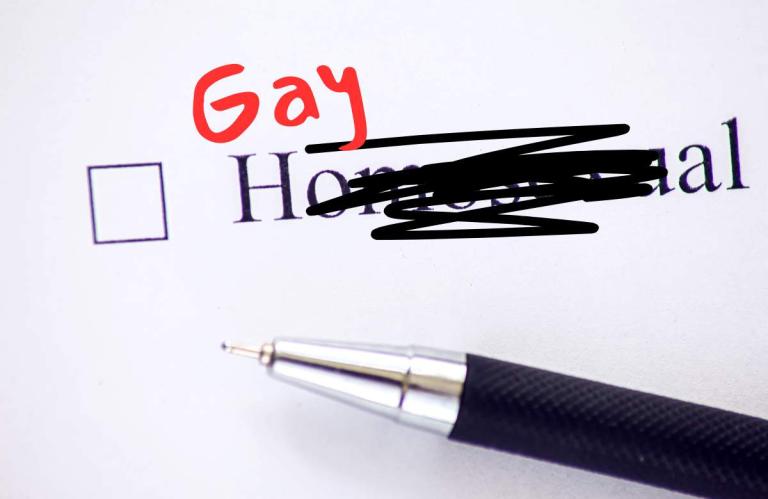
In 1973, the American Psychiatric Association (APA) made a landmark decision: it removed homosexuality from the second edition of its Diagnostic and Statistical Manual of Mental Disorders (DSM-II), marking a monumental shift in how society viewed gay people. This decision came after years of advocacy, scientific research, and cultural change, and while it didn’t immediately end the stigma, it was a significant step forward. Still, the pathologizing label of “homosexual” lingers in our language, carrying with it the weight of its history as a so-called mental disorder.
It’s high time we strip this outdated and harmful term from our vernacular and replace it with words that reflect dignity, humanity, and progress. Words like “gay,” “queer,” or “LGBTQ+” are not only more accurate but also free from the baggage of medical and moral judgment.
A Brief History of “Homosexual” as a Pathology
The term “homosexual” has its roots in 19th-century medical and psychological theories. Early sexologists categorized homosexuality as a deviation or pathology, lumping it in with other so-called disorders of the human psyche. By the mid-20th century, this classification found its way into the DSM, where it was labeled a mental illness. The APA’s 1973 vote to remove it followed pivotal research, such as that by Dr. Evelyn Hooker, which demonstrated that gay people were just as psychologically healthy as their heterosexual counterparts.
Despite its removal from the DSM, the term remained loaded. It was often weaponized by conservative groups and institutions to uphold discrimination, perpetuating a harmful narrative of otherness. Even today, its use feels clinical and detached, reducing a person’s identity to a condition rather than acknowledging their humanity.
Why “Homosexual” Has to Go
Using the term “homosexual” in everyday conversation is not just outdated—it’s harmful. Here’s why:
- Historical Stigma: For decades, “homosexual” was synonymous with sickness and immorality. It invokes an era when being gay was considered a problem to be cured rather than a natural variation of human sexuality.
- Clinical Overtones: Unlike “gay” or “LGBTQ+,” which are affirming and identity-focused, “homosexual” has a detached, medical tone. It feels more like a diagnosis than a description.
- Weaponization by Bigotry: Anti-LGBTQ+ activists frequently use “homosexual” in dehumanizing rhetoric. Its clinical distance makes it easier to depersonalize and vilify.
Language shapes how we think and act. When we move away from outdated terms, we open the door to more affirming and inclusive dialogue.
It’s Not That Hard to Change
Some may argue that there’s no harm in continuing to use “homosexual,” but let’s be honest: is it that difficult to just say “gay”? Or, if you’re unsure about someone’s specific identity, refer to the LGBTQ+ community community (conservatives, I know that letters are hard, but I think you can do this–plus, not being able to remember 5 letters isn’t the flex you think it is). This small shift in language demonstrates respect and understanding—qualities that Christians, in particular, should be striving for.
After all, if Jesus taught us anything, it’s to treat others with compassion and dignity. The continued use of language rooted in shame and exclusion stands in direct opposition to this teaching.
Why This Matters Now
In an era where anti-LGBTQ+ legislation and sentiment are on the rise, it’s more important than ever to challenge the systems and language that perpetuate harm. From bans on gender-affirming care to “don’t say gay” laws, the stakes are high. Our words have power, and they can either reinforce stigma or dismantle it.
If we claim to care about justice, inclusion, and the marginalized, we must start with how we speak. Words matter—they shape the stories we tell about ourselves and each other.
A Call to Action
So, let’s retire the term “homosexual.” Unless you’re talking atop using it in sermons, conversations, or policies. Replace it with words that affirm rather than alienate.
If someone is gay, they’re gay—not a “homosexual.” If someone identifies as part of the LGBTQ+ community, honor that identity without resorting to outdated and stigmatizing language.
To Christians especially: this is your chance to show the world that you’re not stuck in the past. Jesus didn’t just tell us to love our neighbors; he showed us how. He healed, uplifted, and welcomed those on the margins. Using language that reflects dignity and care isn’t just a semantic choice—it’s a moral one.
Language has the power to oppress, but it also has the power to liberate. Let’s choose liberation. Let’s choose love. And let’s choose to move forward, leaving “homosexual” in the dustbin of history where it belongs.
Also, if you’ve been digging my work on here, and want to see me be able to continue writing as close to full-time as humanly possible, please take a look at my Patreon page at www.patreon.com/mjdistefano. Even $1 a month helps bigly!!!














